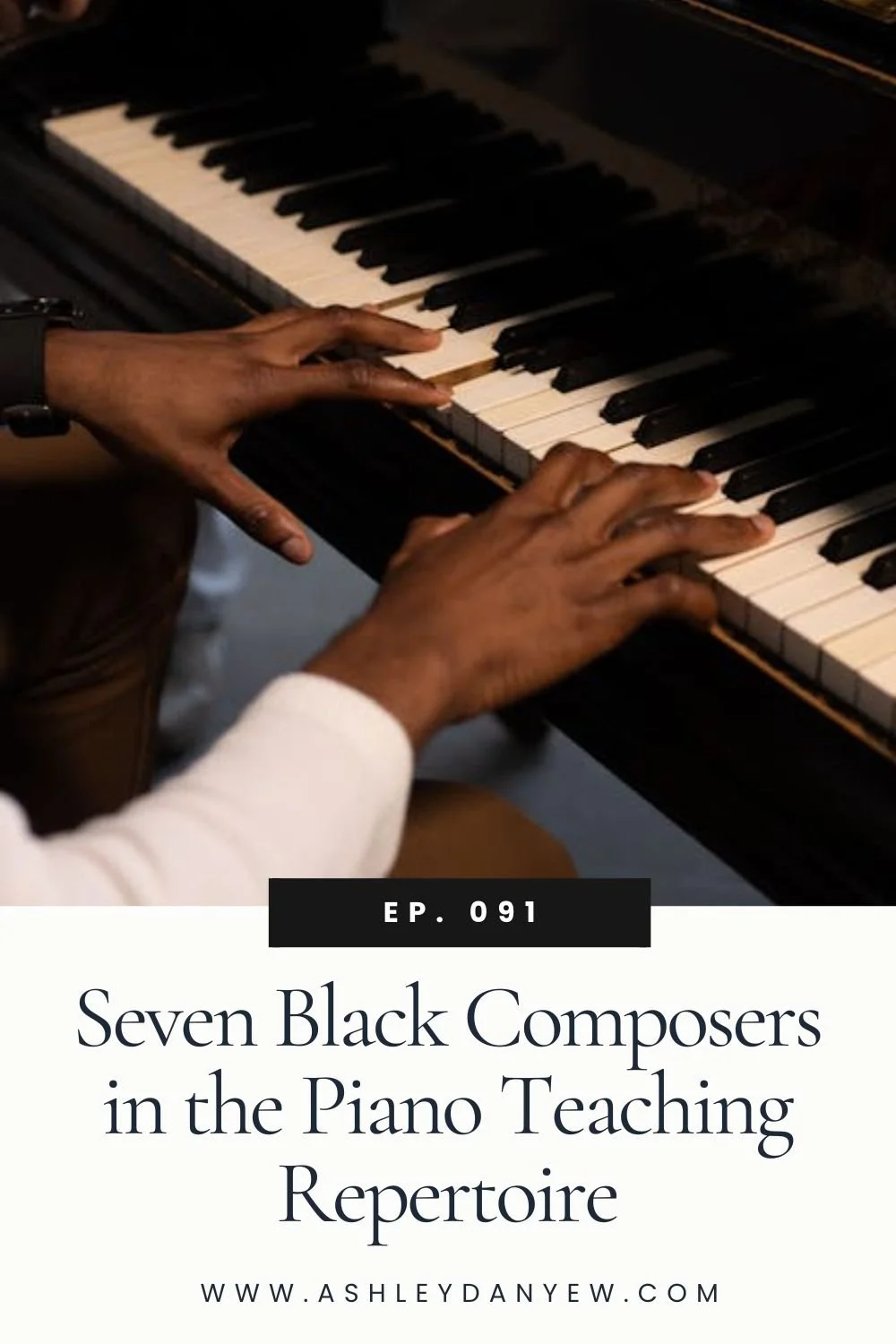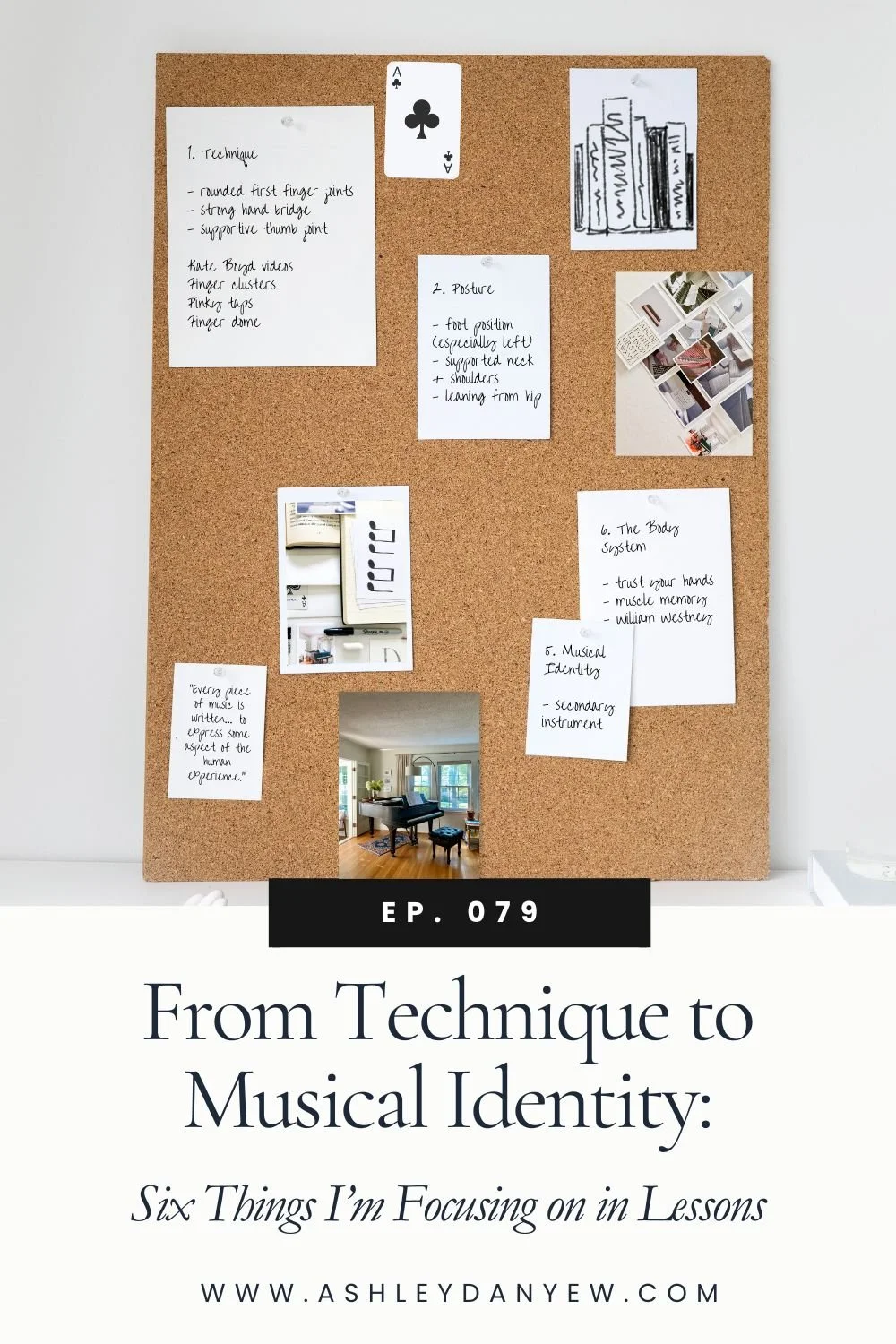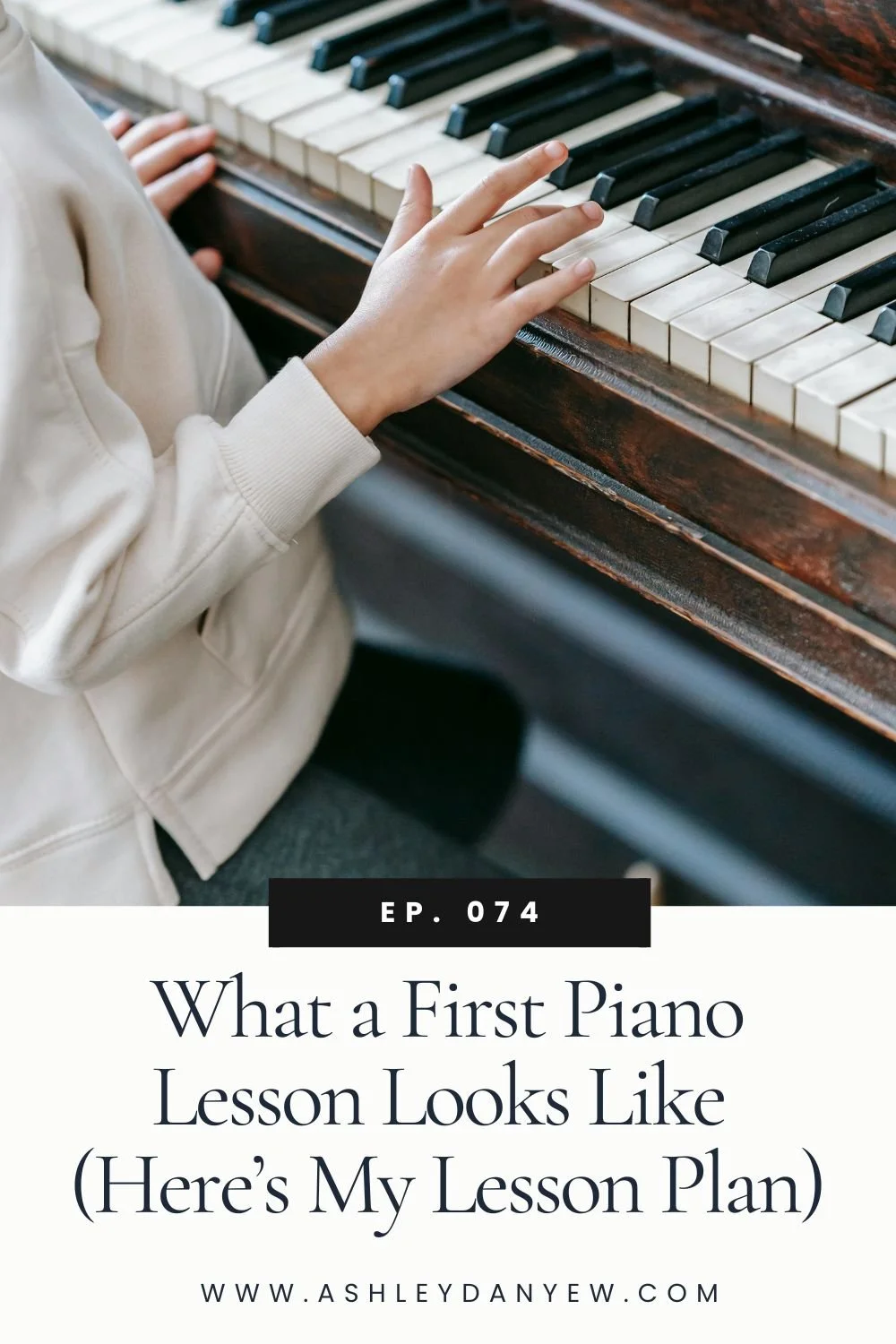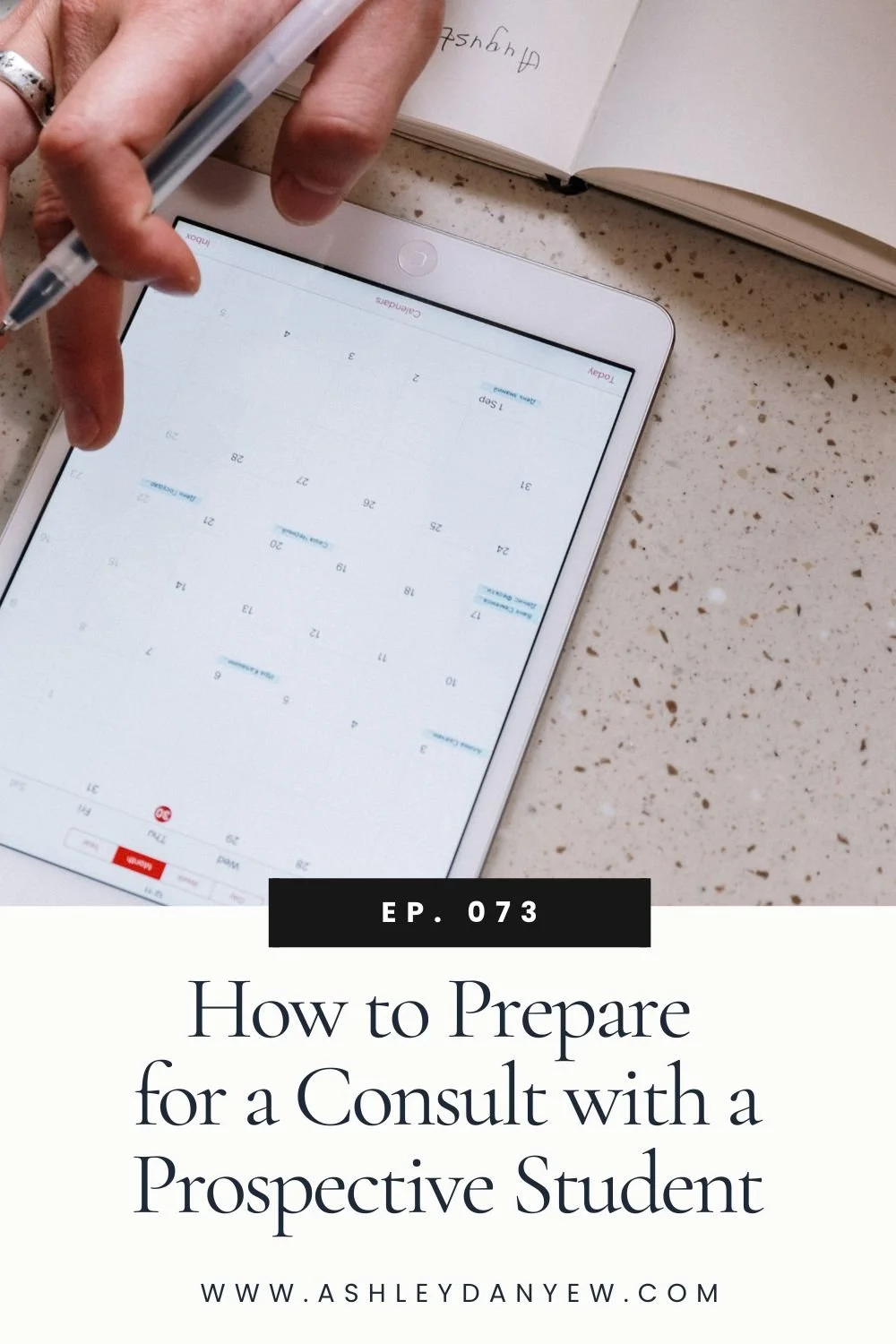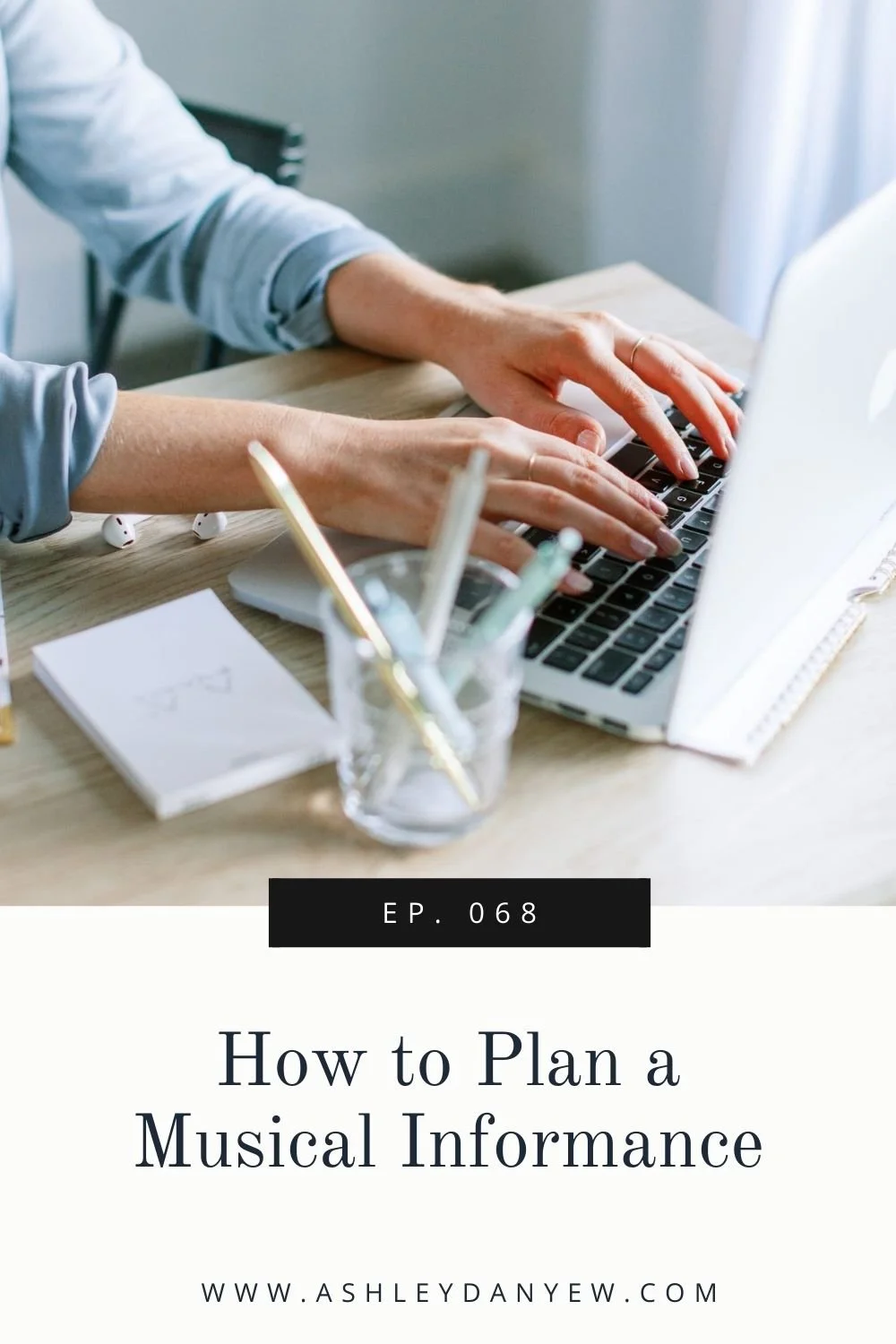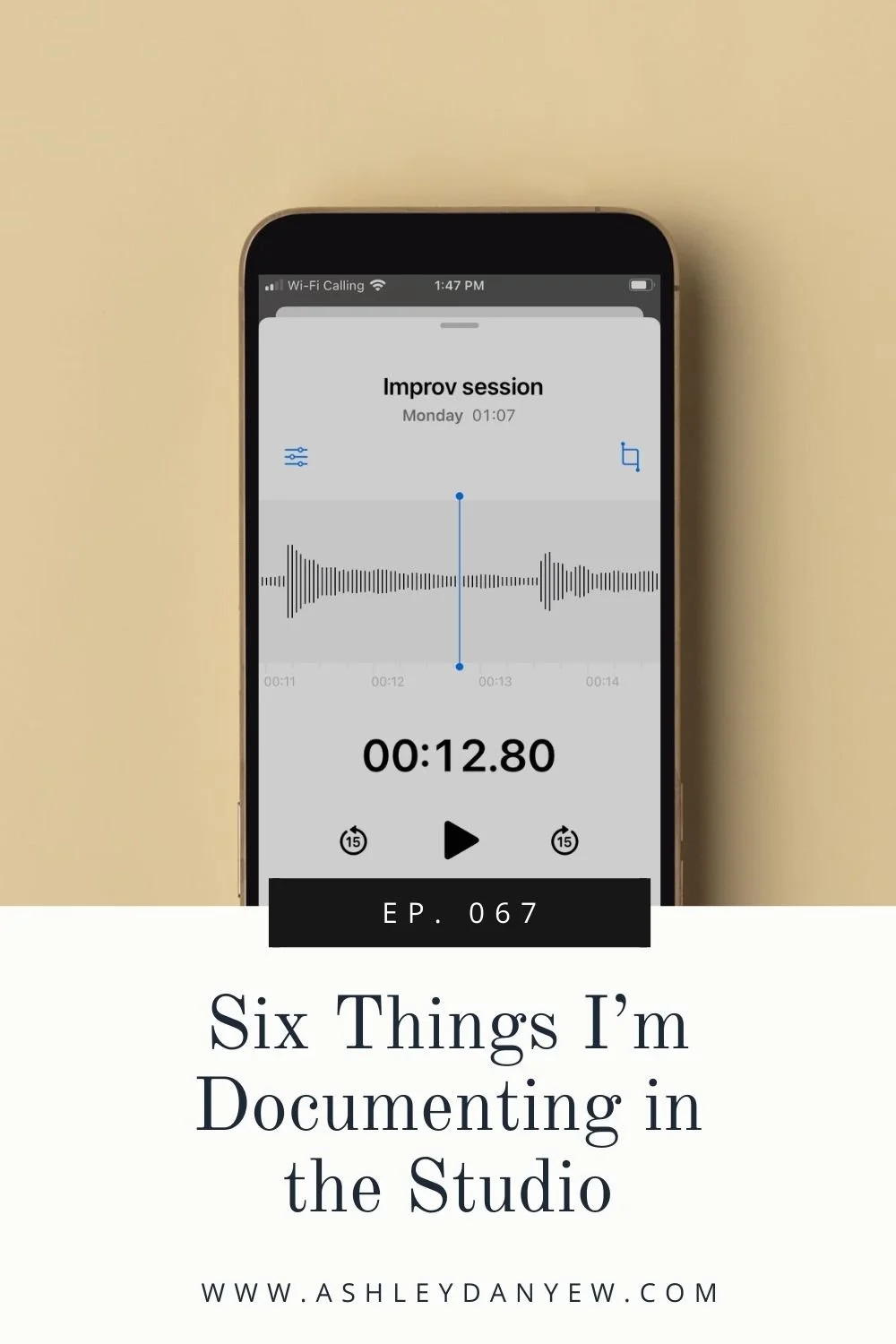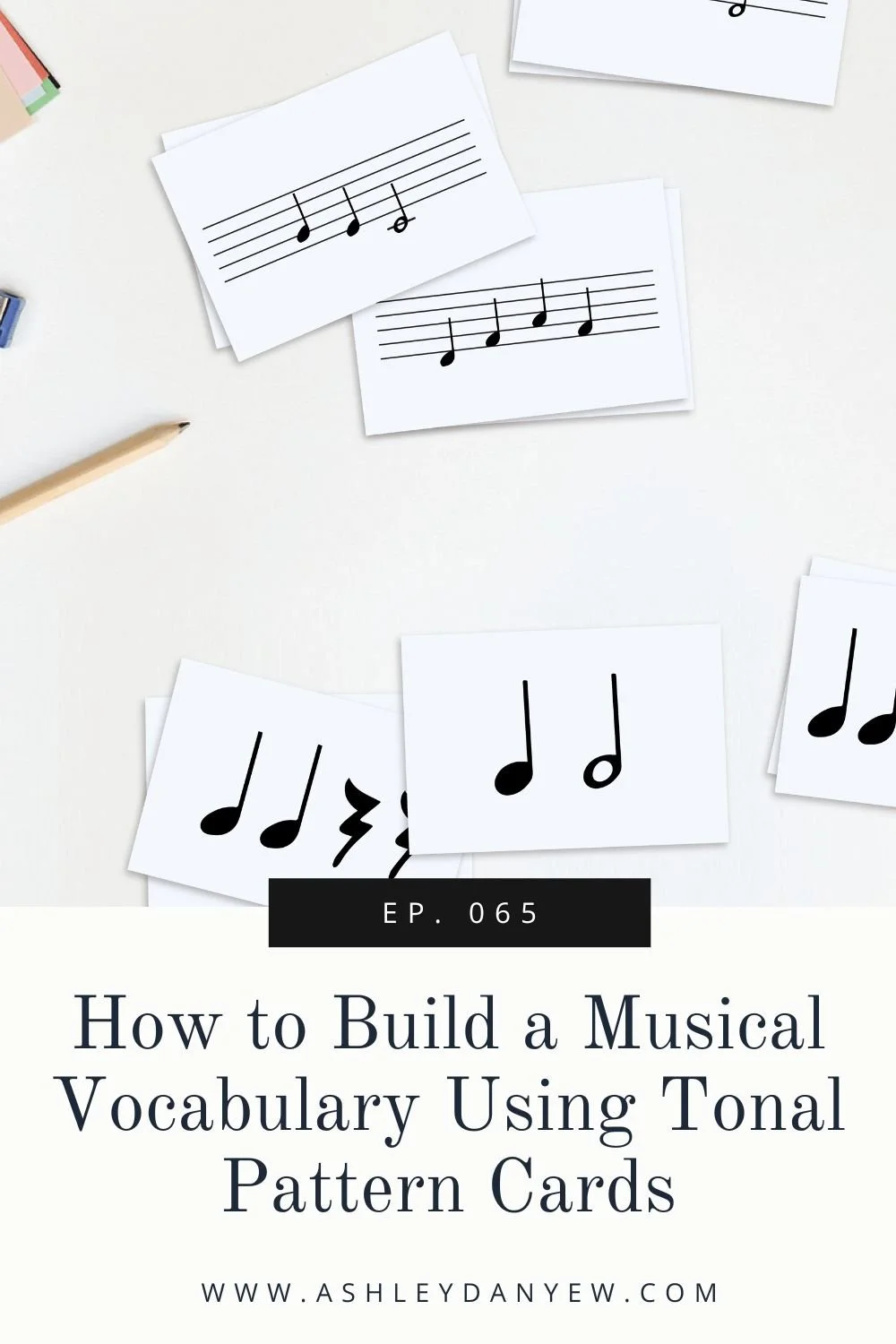Resources Mentioned
*Disclosure: I get commissions for purchases made through some of these links.
A Piano Teacher’s Legacy (Richard Chronister)
Sight-Reading and Rhythm Every Day series (Helen Marlais)
The Music Tree series (Frances Clark & Louise Goss)
Milanote - the tool for organizing creative projects
How to Teach Music Lessons Online (+ Inside My Home Teaching Studio)
Four Reasons Why Playing Your Instrument for Fun is Vital to Your Music Career
I’ve been thinking recently about what it means to be a lifelong learner. I’m an educator, but I’m also a perpetual student and that means there’s always something new to learn, something new to discover.
Julia Child once said, “You'll never know everything about anything, especially something you love.” That about sums it up.
Maybe you can relate. You love teaching, but you also love learning: the continual pursuit of new knowledge, information, understanding.
As lifelong learners, we get to discover new things, new people, and new ideas. We explore things that are new and unfamiliar, whether that’s reading a short biography about a composer or sight-reading a new piece; outlining a new learning sequence or figuring out how to use a new app.
The pursuit of lifelong learning means that things never stay the same for too long. This helps keep us from getting bored or complacent and it helps prevent that stuck-in-a-rut feeling.
We get to be creative and curious.
But what does this look like in practical terms? How do you pursue lifelong learning as a professional, while working full-time, while trying to keep up with students and assignments and lesson-planning?
Today, I’m sharing a personal and practical look at what lifelong learning looks like for me in this season. Here are four things I’m doing this fall to continue learning and developing my skills as a musician and teacher. I hope it inspires you to go out and do the same.
On Being a Lifelong Learner
*Disclosure: I get commissions for purchases made through links in this post.
No. 1 - Learn from a Leader
Look for a book or articles by a teacher or leader in your field—someone you respect and want to learn from.
This summer and fall, I’ve been working my way through Richard Chronister’s A Piano Teacher’s Legacy. As a piano pedagogue and teacher of teachers, he started the first university degree program in piano pedagogy, co-founded the National Conference on Keyboard Pedagogy, and served as founder and editor of Keyboard Companion magazine. But at the same time, he asked deep, reflective questions about the teaching process and how he could continue to improve throughout his career. He asked things like:
How can I build on children's innate love of music?
How can I teach so that my students keep learning, practicing and making music?
How can I teach my students to become independent learners?
What can I apply to my teaching from discoveries of the past and of my own time?
How can I become an acute observer of what my students are doing? And of what I am doing as a teacher?
I’m learning so much about my own teaching practice from the articles, essays, lectures, and addresses in this book.
I’m also signing up for a few professional development webinars. The Frances Clark Center for Keyboard Pedagogy and Clavier Companion (now Piano Magazine) have a wonderful webinar series and they’re free if you tune in live (webinar archives are available if you’re a member). This is a great way to connect with other professionals, participate in a timely discussion about music teaching and learning, diversity and inclusion, teaching beginners, teaching adults, curating repertoire, etc.
If you’re looking for a more longterm option, you might consider joining a professional organization that's specific to your instrument or music education in general, like NAfME, MTNA, or Choristers Guild, or subscribing to a publication like Strings magazine, Music K-8, Music Express, or Piano Magazine.
No. 2 - Evaluate Your Curriculum
At the beginning of this school year, I spent some time reviewing and outlining my curriculum for my studio. I use two different method series with my beginner and elementary students and a variety of supplemental books at all levels.
I recently invested in Levels 1-6 of the Sight-Reading and Rhythm Every Day series by Helen Marlais with Kevin Olson. This is a comprehensive sight-reading curriculum that includes rhythmic-reading, sight-playing exercises, and ensemble pieces. It’s organized into units and days of the week and the exercises are short enough that we can usually get through one day’s worth in our lessons and then the students do 1-2 days worth on their own during the week.
In A Piano Teacher’s Legacy, the book I mentioned a minute ago, Richard Chronister talks about the importance of having a reading curriculum for your students. He says you can’t rely on the repertoire to develop students’ music-reading skills; you need an intentional, sequenced approach to reading—a separate curriculum. I’ve found the Helen Marlais series to be a tremendous resource in my studio.
I’ve also been evaluating my technique curriculum. What skills do I want my students to have by the end of each level? What is the best order for introducing and sequencing these skills? How can I ensure that all my students are developing an equally strong technical foundation for playing?
My first step was to make a list of warm-ups and technical exercises by level, based on the Music Tree series and the Royal Conservatory of Music Piano Syllabus. If you don’t know about this resource, I’ll include a link in the show notes. It’s a leveled curriculum guide (Preparatory A through Level 10) with repertoire lists from each period along with musicianship skills: aural skills, rhythm, sight-reading, and technique.
Also, for those of you who teach an instrument other than piano, the Royal Conservatory has a whole collection of syllabi available for a variety of different instruments, including voice.
I did this same thing with aural skill exercises and activities.
I sorted everything into boards by level using a free tool called Milanote. I’m planning to write a more in-depth post on this soon, but basically, Milanote is a cross between Pinterest and Evernote, designed specifically for creatives. It’s my new favorite tool for writing curricula, organizing ideas, and outlining creative projects. I’ll include a link to it in the show notes, in case you want to try it out.
No. 3 - Try a New Tool
Technology is an integral part of education in our modern world. If we didn't already know that, we certainly do now, after the crazy virtual year we’re having! Learning new technology, whether it’s a software or platform, a tech tool, or an app is a great way to stay fresh and creative.
And the good news is, there’s always new technology to learn!
From apps to recording software, video-editing tools and interactive websites, challenge yourself to find a few new forms of technology to learn about, master, and use in your teaching this year.
This year, I’m learning how to use forScore to organize my digital library and annotate scores and Notability to write assignment sheets for my students each week. I also bought a USB webcam so I can record videos at the piano and show an overhead view of my hands on the keys in lessons.
In fact, I wrote a post a few weeks ago with all the details on how to teach music lessons online, including how I set up my home teaching studio, in case you’re curious. I know I always like seeing what other people do and learning about tools they use.
No. 4 - Learn a New Piece or Set of Pieces
There’s something to be said about staying connected to the art of music-making yourself. As teachers, practicing is often low on our list of to-dos, but this is an important (and vital) part of keeping up our own skillset and giving our best to those we teach on a weekly basis.
I wrote a post about playing your instrument for fun a few years ago—Four Reasons Why Playing Your Instrument for Fun is Vital to Your Music Career.
Choose something new you want to learn (or re-learn) or a new set of pieces you want to study. Lately, I’ve been looking for piano music by Black composers to add to my personal library and be able to recommend to my students in the future: music by Florence B. Price, Samuel Coleridge Taylor, and Harry T. Burleigh, to name a few.
I’m also researching a few others who wrote elementary piano compositions that seem to be out of print: Blanche K. Thomas and Philippa Schuyler.
What are you practicing these days?
I’d love to hear from you:
What does being a lifelong learner mean to you? What does this look like for you in different seasons of the year? Leave a comment on the show notes or reach out to me via email: ashley@ashleydanyew.com.



